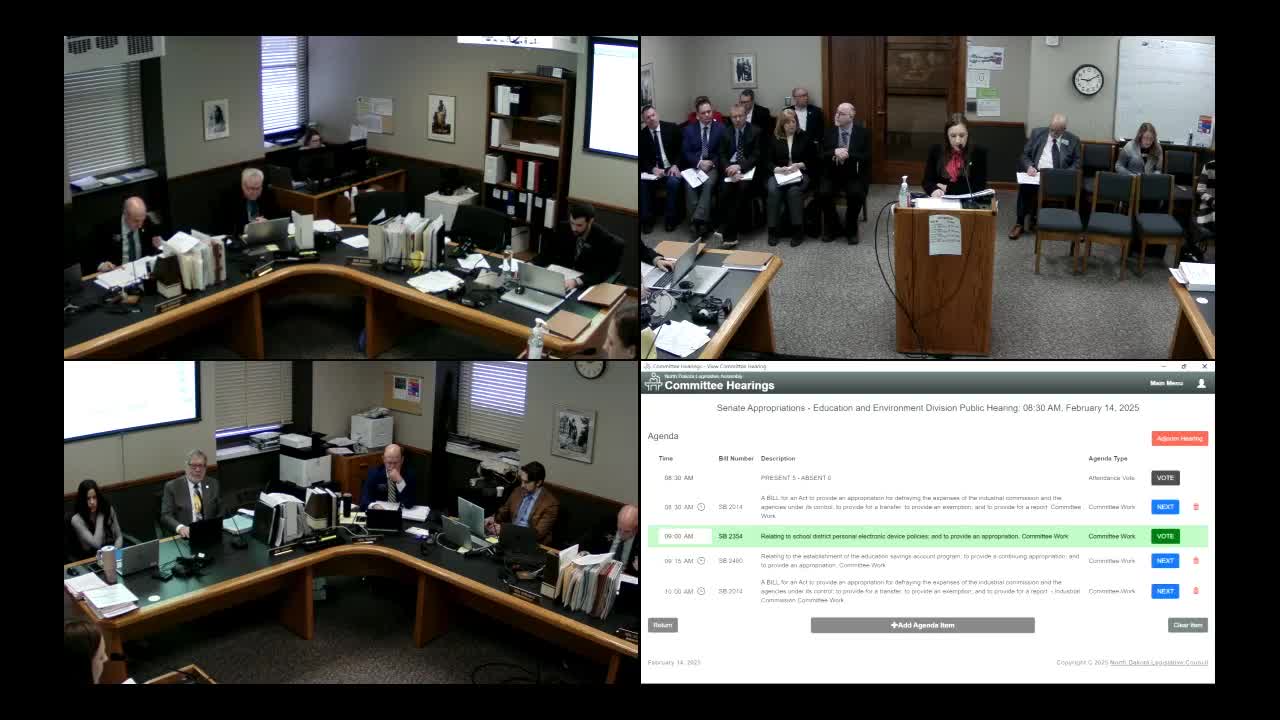Senator presents universal educational savings account plan; committee delays action
Get AI-powered insights, summaries, and transcripts
Subscribe
Summary
Senator Michelle Axman outlined a tiered educational savings account (ESA) proposal that would grant $1,000 to all public school students and higher amounts to nonpublic and homeschool students. The Appropriations committee did not take action and asked for further review of costs and implementation.
Senator Michelle Axman presented Senate Bill 2400 to the Appropriations - Education and Environment Division, describing a three‑tier educational savings account framework she said is intended to be “universal” for public school students while providing larger, means‑tested stipends for nonpublic and home‑educated students.
Key elements Axman described Axman said the bill would establish a Department of Public Instruction‑administered marketplace (digital wallet) and a three‑tier structure: $1,000 per public school student in Tier 1; a tiered set of higher amounts for students using participating nonpublic schools (ranging by income level, with the bill text that committee saw setting top tiers at 300% and 500% of the federal poverty level); and $1,000 for home‑educating families. The sponsor testified that qualifying expenses would be restricted to vetted educational services on the state marketplace and listed mental‑health supports and school meals among eligible expenses.
Funding and administration Axman said the appropriation in the bill was $3,000,000 to DPI to contract for marketplace development and third‑party administration, plus the per‑student funds calculated in the fiscal note. She said the $1,000 per public‑school student figure came from outreach to marketplace vendors and estimates of service costs (tutors, therapy co‑pays, course fees) and that the amount could be adjusted after initial implementation and take‑up analysis.
Questions and concerns raised Committee members sought details about the $1,000 figure, rural access to marketplace services, and the risk the marketplace could be used to buy non‑instructional items such as school meals (which some committee members said could simply drive up utilization without clear evidence of improved educational outcomes). Senator Thomas asked whether items such as medical co‑pays for therapy would qualify; Axman said co‑pays could be covered if they had an educational benefit and if insurance did not pay the full cost. Members also pressed whether DPI would staff the program or contract with third‑party vendors; Axman said a contractor model was expected and that the $3,000,000 appropriation was intended to cover setup and initial contracting.
Committee action No vote was taken on the bill. Committee members asked staff to return the long‑sheet language and schedule further consideration; several senators said they wanted more time to weigh fiscal impacts, rural access and potential overlap with existing federal meal and special‑education funding.
Next steps Committee staff will prepare long‑sheet materials and cost estimates for a subsequent meeting. The sponsor said she expected to come back with clarifications about implementation, vendor options and projected take‑up rates before the committee acts.
